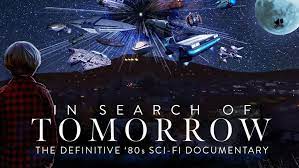Documentary filmmaking is a captivating genre that goes beyond mere storytelling; it’s a powerful danatoto for shedding light on real-world issues, capturing untold stories, and sparking meaningful conversations. In this exploration, we take a deep dive into the world of documentary filmmaking, uncovering the artistry, techniques, and impact of this compelling cinematic form.
The Essence of Documentary Filmmaking: Documentaries serve as windows into the diverse facets of human experience. Unlike fictional narratives, documentaries aim to capture reality, providing audiences with an authentic and often unfiltered view of the world. This genre encompasses a wide range of subjects, from social and political issues to personal narratives and historical events.
Crafting a Compelling Narrative: While the essence of documentaries lies in truth, crafting a compelling narrative is an art in itself. Documentarians carefully structure their films, selecting footage, interviews, and narration to engage viewers emotionally and intellectually. The challenge lies in maintaining authenticity while delivering a coherent and impactful story.
Research and Pre-production: Documentary filmmaking starts with in-depth research. Filmmakers immerse themselves in the subject matter, conducting interviews, gathering archival footage, and exploring the historical or cultural context. Pre-production lays the groundwork for a documentary, shaping the vision and establishing the storytelling framework.
Cinematic Techniques in Documentaries: Documentaries employ a variety of cinematic techniques to convey their narratives effectively. Techniques such as interviews, voiceovers, reenactments, and the use of archival footage contribute to the storytelling. The visual language of documentaries is a delicate balance between capturing reality and presenting it in a visually engaging manner.
The Role of the Filmmaker: Documentary filmmakers play a crucial role as storytellers and advocates. Their responsibility goes beyond filmmaking; it involves ethical considerations, ensuring accuracy, and presenting a fair and unbiased representation of the subject matter. The filmmaker’s perspective and voice can shape the audience’s perception and understanding of the documentary.
Impact and Advocacy: Documentaries have the power to inspire change and raise awareness. Many documentaries serve as catalysts for social or environmental movements, advocating for justice, equality, and positive transformation. The impact of a well-crafted documentary extends beyond the screen, leaving a lasting impression on viewers and society at large.
Evolution of Documentary Filmmaking: The landscape of documentary filmmaking has evolved with technological advancements and changing audience preferences. The accessibility of filmmaking equipment and online platforms has empowered aspiring documentarians to tell stories that might otherwise go untold. The democratization of documentary filmmaking has ushered in a new era of diverse voices and perspectives.










